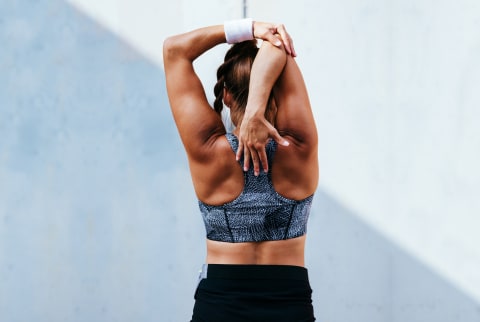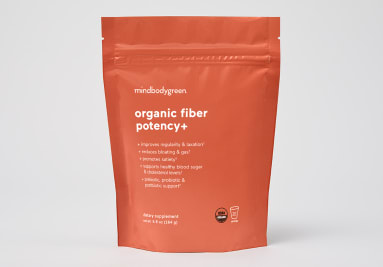
Image by BONNINSTUDIO / Stocksy
June 27, 2023
We all know what we eat plays a pivotal role in our bowel movements, but it’s not the only influential factor. Our physical activity levels—how much and how intensely we move—also affect our regularity. And new research shows just how much increased activity hastens the time it takes food to pass through our bodies.
Advertisement
This ad is displayed using third party content and we do not control its accessibility features.
How physical activity affects your bathroom habits
Anyone who has ever been enjoying a morning run when the sudden urge to use the bathroom hits knows that exercise plays a role in our poop schedules.
But just how influential is it? Researchers studied the physical activity levels and bowel movements of 50 adults to find any potential associations between exercise levels and how long it took food to make its way through their digestive systems. Their results were recently published in The Journal of Nutrition.
They found that more time spent performing light activity was associated with increased whole gut transit time (the time it takes food to pass fully through your body, from ingestion to pooping) and colonic transit time (the time it takes food to pass through the colon). Food spends the most time in the colon during the digestive process, usually between 10 and 59 hours.
The amount of time it takes to fully digest food differs greatly from person to person. It’s generally considered normal for food to take 10 hours to 73 hours1 to pass through your body.
What you eat plays a huge role in the digestive process, too. Simple carbohydrates like white bread move through your system much quicker than fiber-dense complex carbohydrates such as those found in vegetables and oats. That’s why fiber-filled foods keep you full so much longer than sugary snacks. Fats and proteins also take longer to digest.
How to improve digestion
Move your feet: As this research shows, habitual movement, especially light exercise, helps speed digestion, possibly by as much as 30 percent2. Building a daily routine of light exercise and sticking to it can help your poop schedule. For example, walking stimulates your small intestine and stomach muscles. Yoga, especially moves that involve twisting your body, also helps aid digestion and decrease bloating. (Try these seven yoga moves for digestion next time you’re on the mat.)
…But maybe not right after eating: If you work out too intensely after eating a meal, you could experience stomach cramps, bloating, and nausea. Try to wait 30 minutes to an hour to work out after eating to give your body some time to digest your food. However, a slow, 15-minute walk right after exercise is likely fine and may even help aid digestion.
Advertisement
This ad is displayed using third party content and we do not control its accessibility features.
The takeaway
Recent research shows habitual light exercise helps our bodies digest food more quickly, regardless of our age, sex, and body fat level. Along with our stress levels, diet, and sleep pattern, it’s one of many factors that influence the amount of time it takes food to exit our bodies.


